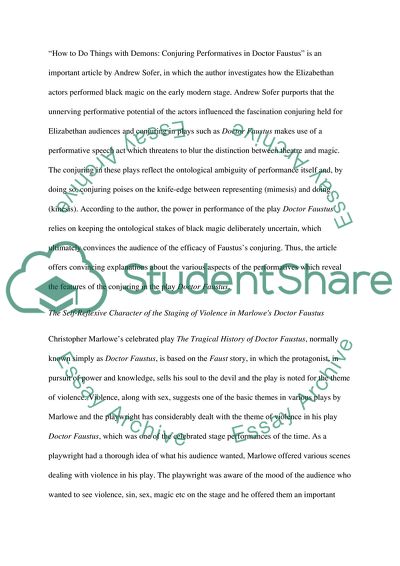Cite this document
(Self-Reflexive Character of the Staging of Violence in Marlowe's Essay, n.d.)
Self-Reflexive Character of the Staging of Violence in Marlowe's Essay. https://studentshare.org/literature/1735235-explore-the-self-reflexive-character-of-the-staging-of-violence-in-marlowes-doctor-faustus
Self-Reflexive Character of the Staging of Violence in Marlowe's Essay. https://studentshare.org/literature/1735235-explore-the-self-reflexive-character-of-the-staging-of-violence-in-marlowes-doctor-faustus
(Self-Reflexive Character of the Staging of Violence in Marlowe'S Essay)
Self-Reflexive Character of the Staging of Violence in Marlowe'S Essay. https://studentshare.org/literature/1735235-explore-the-self-reflexive-character-of-the-staging-of-violence-in-marlowes-doctor-faustus.
Self-Reflexive Character of the Staging of Violence in Marlowe'S Essay. https://studentshare.org/literature/1735235-explore-the-self-reflexive-character-of-the-staging-of-violence-in-marlowes-doctor-faustus.
“Self-Reflexive Character of the Staging of Violence in Marlowe'S Essay”. https://studentshare.org/literature/1735235-explore-the-self-reflexive-character-of-the-staging-of-violence-in-marlowes-doctor-faustus.


